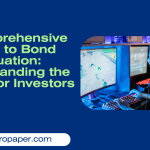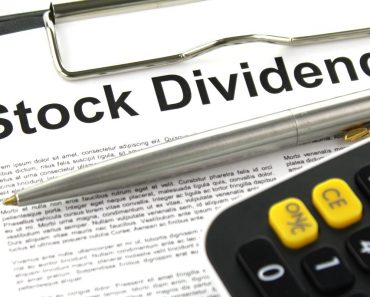Factors Affecting Dividend policy of a firm
“Dividend policy determines the ultimate distribution of the firm’s earnings between retention (that is reinvestment) and cash dividend payments of shareholders.”10 “Dividend policy means the practice that management follows in making dividend payout decisions, or in other words, the size and pattern of cash distributions over the time to shareholders.”11 In other words, dividend policy is the firm’s plan of action to be followed when dividend decisions are made. It is the decision about how much of earnings to pay out as dividends versus retaining and reinvesting earnings in the firm. Dividend policy means policy or guideline followed by the management in declaring of dividend. A dividend policy decides proportion of dividend and retains earnings. Retained earnings are an important source of internal finance for long term growth of the company while dividend reduces the available cash funds of company.
“As long as the firm has investment project whose returns exceed its cost of capital, it will use retained earnings to finance these projects”.12 There is a reciprocal relationship between retained earnings and dividend i.e. larger the retained earnings, lesser the dividend and smaller the retained earnings, larger the dividend. James E. Walter (1963) says “Choice of dividend policy almost effects the value of the enterprise”13 “Dividend policy must be evaluated in light of the objective of the firm namely, to choose a policy that will maximize the value of the firm to its shareholders” Financial Management and Policy.14 As we know in corporation, owners are shareholders but management is done through Board of directors. It is the Board of Directors to decide whether to pay dividend or retain earnings for future projects. It is a matter of conflict between shareholders and directors.
Shareholders expect a quick return on their capital. On the other hand, directors have to consider a number of factors in determining divided policy. Investors must keep an eye on the company’s dividend policy for most companies regular boosts in the face of irregular earnings can be a warning signal. So can the refusal of Management to lower dividends when earning fall or capital requirement rise. Companies with high dividend and rising debt may be borrowing money to pay shareholders. For investors who are seeking stock that will advance on their performance and earning and earning per share, lower dividend may mean high returns. (Adopted from the Quality of earnings – Thornton O. Glove 1987) The dividend policy of a company reflects how prudent its financial management is. The future prospects, expansion, diversification mergers are effected by dividing policies and for a healthy and buoyant capital market, both dividends and retained earnings are important factors. Most of the company follows some kind of dividend policy. The usual policy of a company is to retain a position of net earnings and distribute the remaining amount to the shareholders. Many factors have to be evaluated before forming a long term dividend policy.
TYPES OF DIVIDENDS:
Classifications of dividends are based on the form in which they are paid. Following given below are the different types of dividends: Cash dividend Bonus Shares referred to as stock dividend in USA Property dividend interim dividend, annual dividend. Special- dividend, extra dividend etc. Regular Cash dividend Scrip dividend Liquidating dividend Property dividend
3.3.1 Cash dividend:
Companies mostly pay dividends in cash. A Company should have enough cash in its bank account when cash dividends are declared. If it does not have enough bank balance, arrangement should be made to borrow funds. When the Company follows a stable dividend policy, it should prepare a cash budget for the coming period to indicate the necessary funds, which would be needed to meet the regular dividend payments of the company. It is relatively difficult to make cash planning in anticipation of dividend needs when an unstable policy is followed. The cash account and the reserve account of a company will be reduced when the cash dividend is paid. Thus, both the total assets and net worth of the company are reduced when the cash dividend is distributed. The market price of the share drops in most cases by the amount of the cash dividend distributed.
Bonus Shares :
(OR Stock -dividend in USA) An issue of bonus share is the distribution of shares free of cost to the existing shareholders, In India, bonus shares are issued in addition to the cash dividend and not in lieu of cash dividend. Hence, Companies in India may supplement cash dividend by bonus issues. Issuing bonus shares increases the number of outstanding shares of the company. The bonus shares are distributed proportionately to the existing shareholder. Hence there is no dilution of ownership. The declaration of the bonus shares will increase the paid-up Share Capital and reduce the reserves and surplus retained earnings) of the company. The total net-worth (paid up capital plus reserves and surplus) is not affected by the bonus issue. Infect, a bonus issue represents a recapitalization of reserves and surplus. It is merely an accounting transfer from reserves and surplus to paid up capital. The following are advantages of the bonus shares to shareholders: 1) Tax benefit: One of the advantages to shareholders in the receipt of bonus shares is the beneficial treatment of such dividends with regard to income taxes. 2) Indication of higher future profits: The issue of bonus shares is normally interpreted by shareholders as an indication of higher profitability. 3) Future dividends may increase : if a Company has been following a policy of paying a fixed amount of dividend per share and continues it after the declaration of the bonus issue, the total cash dividend of the shareholders will increase in the future. 4) Psychological Value: The declaration of the bonus issue may have a favorable psychological effect on shareholders. The receipt of bonus shares gives them a chance sell the shares to make capital gains without impairing their principal investment. They also associate it with the prosperity of the company.
3.3.3 Special dividend :
In special circumstances Company declares Special dividends. Generally company declares special dividend in case of abnormal profits. 3.3.4 Extra- dividend: An extra dividend is an additional non-recurring dividend paid over and above the regular dividends by the company. Companies with fluctuating earnings payout additional dividends when their earnings warrant it, rather than fighting to keep a higher quantity of regular dividends. 3.3.5 Annual dividend: When annually company declares and pay dividend is defined as annual dividend. 3.3.6 Interim dividend During the year any time company declares a dividend, it is defined as Interim dividend. 3.3.7 Regular cash dividends: Regular cash dividends are those the company exacts to maintain every year. They may be paid quarterly, monthly, semiannually or annually. 3.3.8 Scrip dividends: These are promises to make the payment of dividend at a future date: Instead of paying the dividend now, the firm elects to pay it at some later date. The ‘scrip’ issued to stockholders is merely a special form of promissory note or notes payable 3.3.9 Liquidating dividends: These dividends are those which reduce paid-in capital: It is a pro-rata distribution of cash or property to stockholders as part of the dissolution of a business 3.3.10 Property dividends: These dividends are payable in assets of the corporation other than cash. For example, a firm may distribute samples of its own product or shares in another company it owns to its stockholders.
THE DIVIDEND DECISION WHO MAKES DIVIDEND DECISION?
The company’s Board of Directors makes dividend decisions. They are faced with the decision to pay out dividends or to reinvest the cash into new projects15. The tradeoff between paying dividends and retaining profits within the company The dividend policy decision is a trade-off between retaining earnings v/s paying out cash dividends. Dividend policies must always consider two basic objectives: Maximizing owners’ wealth Providing sufficient financing While determining a firm’s dividend policy, management must find a balance between current income for stockholders (dividends) and future growth of the company (retained earnings). In applying a rational framework for dividend policy, a firm must consider the following two issues:16 3.4.1 How much cash is available for paying dividends to equity investors, after meeting all needs-debt payments, capital expenditures and working capital (i.e. Free Cash Flow to Equity – FCFE) 3.4.2 To what extent are good projects available to the firm (i.e. Return on equity – ROE > Required Return) The potential combinations of FCFE and Project Quality and the generalizations of the dividend policy to be adapted in each situation are presented below:
DIVIDEND PAYMENT PROCEDURES
The firm’s board of directors normally meets quarterly to evaluate financial performance and decide whether, and in what amount, dividends should be paid. If dividend is to be paid the declaration date, record date etc. have to be established.
Declaration date:
This is the day on which the board of directors declares a payment of dividend. Date of Record: This is the day on which all persons whose names are recorded as stockholders will receive the dividend. Payment date: The dividend checks are mailed to shareholders of record. Cum Dividend date: This is the last say on which the buyer who buys the stock is entitled to get the dividend.
Ex-Dividend date:
Shares become ex dividend on the date seller is entitled to keep the dividend. This is the first date on which the buyer who buys the stock is not entitled to dividend.
DIVIDEND POLICY THEORIES
Over the time various theories of dividend policy have emerged; some of the main theories are as follows:
The Residual Theory of Dividend Policy The residual theory of dividend policy holds that the firm will only pay dividend from residual earnings, that is dividends should be paid only if funds remain after the optimum level of capital expenditures is incurred i.e. all suitable investment opportunities have been financed. With a residual dividend policy, the primary focus of the firm is on investments and hence dividend policy is a passive decision variable. The value of a firm is a direct function of its investment decisions thus making dividend policy irrelevant.
3.6.2 Dividend Irrelevancy Theory, (Miller & Modigliani, 1961)17 The dividend irrelevancy theory asserts that dividend policy has no effect on either the price of the firm or its cost of capital. Dividend Irrelevance Arguments Dividend policy does not affect share price because the value of the firm is a function of its earning power and the risk of its assets. If dividends do affect value, it is only due to: a) Information effect : The informational content of dividends relative to management’s earnings expectations b) Clientele effect: A clientele effect exists which allows firms to attract shareholders whose dividend preferences match the firm’s historical dividend payout patterns. A study conducted by Aswath Damodaran18 found that.
*(a) Older investors were more likely to hold high dividend stocks and
*(b) Poorer investors tended to hold high dividend stocks Hence, firms with older investors pay higher dividends and firms with wealthier investors pay lower dividends.
Signaling effect:
Rise in dividend payment is viewed as a positive signal whereas a reduction in dividend payment is viewed as a negative signal about the future earnings prospects of the company, thus leading to an increase or decreases in share prices of the firm. Managers use dividends as signals to transmit information to the capital market. Theoretical models by Bhattacharya (1979)19, Miller and Rock (1985)20 and John and Williams (1985)21 and Williams (1988)22 tell us.
that dividend increases convey good news and dividend decreases convey bad news. However, this theory is based on the following assumptions:
1. There is an existence of perfect capital markets i.e. No personal or corporate taxes and no transaction costs.
2. The firm’s investment policy is independent of its dividend policy.
3. Investors behave rationally and information is freely available to them
4. Risk or uncertainty does not exist. The above-mentioned assumptions exclude personal and corporate taxes as well as any linkage to capital investment policy as well as other factors that limit its application to real world situations.


 - [Resolving the Adventure Not Found Error in For the King 2](#) - [Understanding the Purpose of the Hardwork Skill in For the King 2](#) Upon liberating the prisoner from the cart in The Resistance chapter, the world unfurls for exploration. Roam the area until you chance upon an overturned wagon distinct from the prisoner cart, nestled in the Foothills area of the map. Should the wagon remain elusive, lean on Vision Scrolls or Find Distance items, available in town shops, dropped by enemies, or carried by specific characters such as the Scholar. Employ these tools to meticulously scrutinize the Foothills. Continue your exploration of the Foothills until you stumble upon the broken wagon. Once uncovered, assign any of your party members to investigate – no battle ensues, sparing your entire party from involvement. A notification will prompt you to the exact location of the Bandit Camp, where Hildegard's husband is being held captive. Liberate him from the camp to successfully fulfill this objective. These are the crucial steps to unraveling the mystery of Hildegard's husband in For the King 2. If you found this guide beneficial, consider exploring our diverse range of other informative guides.](https://meropaper.com/wp-content/uploads/2024/01/for-the-king-2-hildegard-husband-cart2-150x150.webp)








